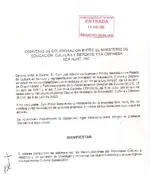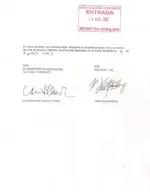Jolly Mon
Hero Member
- Joined
- Sep 3, 2012
- Messages
- 868
- Reaction score
- 631
- Golden Thread
- 0
- Primary Interest:
- All Treasure Hunting
- #1
Thread Owner
https://www.federalregister.gov/art...tions-and-other-activities-directed-at-sunken
I realize this subject has been broached on other threads, but it has become a tad confused so I wanted to streamline some thoughts a bit.
The Navy's final rules for the Sunken Military Craft Act of 2004 go into effect on March 1st, 2016. Many seem to believe that nothing will change under the final ruling.
Maybe they are right.
However, I wanted to point out a couple of potential "trouble spots" in the wording of the Act and on Act's permitting process.
Here are the new permitting guidelines for foreign "military craft":
" § 767.15 Application to foreign sunken
military craft and U.S. sunken military craft
not under the jurisdiction of the DON.
(a) Sunken military craft are generally
entitled to sovereign immunity
regardless of where they are located or
when they sank. Foreign governments
may request, via the Department of
State, that the Secretary of the Navy
administer a permitting program for a
specific or a group of its sunken military
craft in U.S. waters. The request must
include the following:
(1) The foreign government must
assert the sovereign immunity of or ownership over a specified sunken
military craft or group of sunken
military craft;
(2) The foreign government must
request assistance from the United
States government;
(3) The foreign government must
acknowledge that subparts B and C of
this part will apply to the specified
sunken military craft or group of sunken
military craft for which the request is
submitted.
And further:
d) In the case where there is
reasonable dispute over the sovereign
immunity or ownership status of a
foreign sunken military craft, the
Secretary of the Navy, or his or her
designee, maintains the right to
postpone action on §§ 767.6 and 767.12,
as well as requests under paragraph (a)
of this section, until the dispute over the
sovereign immunity or ownership status
is resolved.
Note the wording (emphasis added):
“The foreign government must assert the sovereign immunity or ownership”...
Not PROVE, merely “assert”...sovereign immunity not required...simply an assertion of ownership...
Paragraph “d”, above, is potentially a doozy which might in effect shift the burden of proof of identity/ownership from the foreign state to the salvor.
Here is a scenario:
Salvor locates an unidentified wreck. Salvor files admiralty claim. Spain claims that, through research, it believes the unidentified wreck to be Nuestra Senora de la Caca, a galleon owned by the Spanish Crown at the time of its demise. Surely this constitutes a “reasonable dispute” as to ownership. Since Spain has asserted ownership and requested US government assistance, the admiralty claim cannot be executed and the ship becomes a "sunken military craft" if the NHHC agrees with the Spanish claim. At this point, the Secretary of the Navy's designee, NHHC, under the new guidelines, can postpone action concerning the vessel until the “ownership status is resolved”. Does the burden of proof of ownership/identity lie with Spain or with the salvor? The Act repeatedly stresses the reciprocal nature of the statute. If the ownership status cannot be proven one way or another, it would seem Nuestra Senora de La Caca would remain under the jurisdiction of the DON and preserved in situ...which is basically the stated aim of who those make the decisions at the NHHC...
Also, the definition of a "military craft" under the Act is very problematical:
"(1) Any sunken warship, naval
auxiliary, or other vessel that was
owned or operated by a government on
military noncommercial service when it
sank;
(2) Any sunken military aircraft or
military spacecraft that was owned or
operated by a government when it sank;
(3) The associated contents of a craft
referred to in paragraph (1) or (2) of this
definition;
(4) Any craft referred to in paragraph
(1) or (2) of this definition which may
now be on land or in water, if title
thereto has not been abandoned or
transferred by the government
concerned."
This definition is potentially very broad and open to interpretation. Solely or strictly "military noncommercial service" is not specified. Nor even is "predominantly" military noncommercial service required. Apparently, only some form of limited military service (delivery of supplies or munitions?...transport of military personnel?...the potential list of what might qualify as "military noncommercial service is very extensive).
Here is the Navy's response to criticism of the broad, nebulous definition of a "military craft":
"“Whereas a number of public comments
recommended further revision of the
definition of ‘‘Sunken Military Craft’’,
the DON believes the established
definition appropriately identifies the
set of assets Congress intended to afford
protection to and requires no alteration.
In contrast with interpretations
expressed in certain public comments,
merchant ships in private ownership
may not qualify as sunken military craft
unless they served as vessels operated
by a government on military
noncommercial service when they sank.
The DON does not believe that it is in
the interest of international reciprocity
to specifically delineate a category of
foreign sunken military craft and
exclude them from the set of assets
afforded protection by the SMCA, as
suggested by certain comments. This
would run contrary to the stated intent
of the Act to promote bilateral and
multilateral understandings or
agreements with foreign states,
ultimately aimed at protecting the
thousands of U.S. sunken military craft
resting in foreign or international
waters.”
Note that merchant ships in private ownership may not qualify as sunken military craft. The wording is not cannot or do not but may not. Also note that “military noncommercial service” is undefined according to the act.
The Navy explains its stated reasons for the ambiguity in the second paragraph above.
The definition of a “sunken military craft” is purposely vague and open to interpretation precisely to accommodate the claims of foreign nations.
Would Atocha be considered a military craft under the wording of the act if found today? Santa Margarita? The ships of the 1715 fleet?
I realize this subject has been broached on other threads, but it has become a tad confused so I wanted to streamline some thoughts a bit.
The Navy's final rules for the Sunken Military Craft Act of 2004 go into effect on March 1st, 2016. Many seem to believe that nothing will change under the final ruling.
Maybe they are right.
However, I wanted to point out a couple of potential "trouble spots" in the wording of the Act and on Act's permitting process.
Here are the new permitting guidelines for foreign "military craft":
" § 767.15 Application to foreign sunken
military craft and U.S. sunken military craft
not under the jurisdiction of the DON.
(a) Sunken military craft are generally
entitled to sovereign immunity
regardless of where they are located or
when they sank. Foreign governments
may request, via the Department of
State, that the Secretary of the Navy
administer a permitting program for a
specific or a group of its sunken military
craft in U.S. waters. The request must
include the following:
(1) The foreign government must
assert the sovereign immunity of or ownership over a specified sunken
military craft or group of sunken
military craft;
(2) The foreign government must
request assistance from the United
States government;
(3) The foreign government must
acknowledge that subparts B and C of
this part will apply to the specified
sunken military craft or group of sunken
military craft for which the request is
submitted.
And further:
d) In the case where there is
reasonable dispute over the sovereign
immunity or ownership status of a
foreign sunken military craft, the
Secretary of the Navy, or his or her
designee, maintains the right to
postpone action on §§ 767.6 and 767.12,
as well as requests under paragraph (a)
of this section, until the dispute over the
sovereign immunity or ownership status
is resolved.
Note the wording (emphasis added):
“The foreign government must assert the sovereign immunity or ownership”...
Not PROVE, merely “assert”...sovereign immunity not required...simply an assertion of ownership...
Paragraph “d”, above, is potentially a doozy which might in effect shift the burden of proof of identity/ownership from the foreign state to the salvor.
Here is a scenario:
Salvor locates an unidentified wreck. Salvor files admiralty claim. Spain claims that, through research, it believes the unidentified wreck to be Nuestra Senora de la Caca, a galleon owned by the Spanish Crown at the time of its demise. Surely this constitutes a “reasonable dispute” as to ownership. Since Spain has asserted ownership and requested US government assistance, the admiralty claim cannot be executed and the ship becomes a "sunken military craft" if the NHHC agrees with the Spanish claim. At this point, the Secretary of the Navy's designee, NHHC, under the new guidelines, can postpone action concerning the vessel until the “ownership status is resolved”. Does the burden of proof of ownership/identity lie with Spain or with the salvor? The Act repeatedly stresses the reciprocal nature of the statute. If the ownership status cannot be proven one way or another, it would seem Nuestra Senora de La Caca would remain under the jurisdiction of the DON and preserved in situ...which is basically the stated aim of who those make the decisions at the NHHC...
Also, the definition of a "military craft" under the Act is very problematical:
"(1) Any sunken warship, naval
auxiliary, or other vessel that was
owned or operated by a government on
military noncommercial service when it
sank;
(2) Any sunken military aircraft or
military spacecraft that was owned or
operated by a government when it sank;
(3) The associated contents of a craft
referred to in paragraph (1) or (2) of this
definition;
(4) Any craft referred to in paragraph
(1) or (2) of this definition which may
now be on land or in water, if title
thereto has not been abandoned or
transferred by the government
concerned."
This definition is potentially very broad and open to interpretation. Solely or strictly "military noncommercial service" is not specified. Nor even is "predominantly" military noncommercial service required. Apparently, only some form of limited military service (delivery of supplies or munitions?...transport of military personnel?...the potential list of what might qualify as "military noncommercial service is very extensive).
Here is the Navy's response to criticism of the broad, nebulous definition of a "military craft":
"“Whereas a number of public comments
recommended further revision of the
definition of ‘‘Sunken Military Craft’’,
the DON believes the established
definition appropriately identifies the
set of assets Congress intended to afford
protection to and requires no alteration.
In contrast with interpretations
expressed in certain public comments,
merchant ships in private ownership
may not qualify as sunken military craft
unless they served as vessels operated
by a government on military
noncommercial service when they sank.
The DON does not believe that it is in
the interest of international reciprocity
to specifically delineate a category of
foreign sunken military craft and
exclude them from the set of assets
afforded protection by the SMCA, as
suggested by certain comments. This
would run contrary to the stated intent
of the Act to promote bilateral and
multilateral understandings or
agreements with foreign states,
ultimately aimed at protecting the
thousands of U.S. sunken military craft
resting in foreign or international
waters.”
Note that merchant ships in private ownership may not qualify as sunken military craft. The wording is not cannot or do not but may not. Also note that “military noncommercial service” is undefined according to the act.
The Navy explains its stated reasons for the ambiguity in the second paragraph above.
The definition of a “sunken military craft” is purposely vague and open to interpretation precisely to accommodate the claims of foreign nations.
Would Atocha be considered a military craft under the wording of the act if found today? Santa Margarita? The ships of the 1715 fleet?
Amazon Forum Fav 👍
Last edited:





